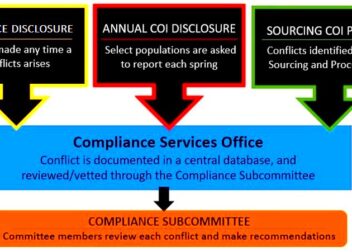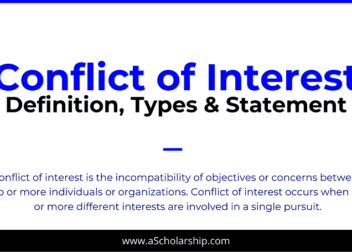Understanding Massachusetts Conflict of Interest Laws
Massachusetts has laws in place to prevent conflicts of interest. They serve to uphold public trust. I recall a story about a local official who faced consequences for accepting a seemingly insignificant gift. While it appeared inconsequential at first it crossed an ethical boundary. These regulations set limits to ensure that officials prioritize the welfare of the community over their interests. Its all about maintaining fairness and integrity by preventing anyone from manipulating the rules for personal benefit.
Who Is Covered Under These Laws?
You may assume that these regulations apply solely to prominent political figures but that’s not true. They actually extend to a diverse array of people including state workers and members of local school boards. Picture this scenario; if you’re volunteering for a committee you might be surprised to learn that you too could fall under the purview of these laws. It’s not limited to politicians or high ranking officials; these guidelines are relevant for anyone engaged, in government activities even on a part time level.
The concept here is that when it comes to dealing with contracts or giving the green light to community events personal interests should not come into play. I recall a friend of mine who worked as a consultant and although he didn’t hold an official government position he had to tread carefully. He had access to information and was involved in decisions that could be influenced by personal connections. There are laws in place to address these scenarios making sure that decisions are made for the reasons.
Key Provisions and Restrictions
The rules are quite straightforward when it comes to what not to do. For instance public officials are prohibited from accepting gifts valued at over $50. If you’ve been in a workplace you understand how even gestures can sway choices. I’ve witnessed individuals present gifts with intentions unaware that they are putting someone in a position.
Another important rule is that officials shouldn’t get involved in situations where they or their family have a financial interest. It’s quite logical don’t you think? You wouldn’t want someone making decisions on a deal if their partner stands to benefit from it. Picture this scenario – you’re a member of a school board and your relatives company is competing for a contract to renovate the gym. According to the law you should recuse yourself, from voting or having any influence. This rule is put in place to ensure transparency.
Here’s a brief rundown of key limitations:
- Officials cannot solicit or accept gifts that may influence their actions.
- They are prohibited from participating in decisions where they have personal financial interests.
- Using confidential information gained from their position for personal gain is illegal.
Breaking these rules can lead to serious consequences, including hefty fines or even job loss. And it’s not solely about the financial aspect. The impact on your reputation can be the toughest to bounce back from. These regulations exist for reasons, ensuring that the system remains equitable for all parties involved.
Common Violations and Penalties
Breaking conflict of interest laws in Massachusetts may seem like a thing but it occurs more frequently than we might imagine. A mere slip up can get a public servant into hot water. I recall a story about an official from a town who was penalized for accepting complimentary tickets to a sports event. What appeared to be a nice gesture at first glance is viewed differently by the law. Even the tiniest gifts can give rise to an impression of favoritism.
One of the most common violations is accepting gifts or favors. This includes anything from cash to event tickets. Sometimes, it’s not the gift itself but the implication that it could influence a decision. I’ve seen cases where officials didn’t even realize they were crossing a line. Another common violation is involvement in decisions that benefit a family member or close friend financially. It’s not always intentional, but the law is clear—if there’s any potential for personal gain, you must recuse yourself.
The consequences for misconduct vary based on how serious the breach is. A minor infraction could lead to a penalty that’s substantial enough to give anyone pause. Grave transgressions may result in suspension, termination or even legal action. Here’s a brief overview of the potential repercussions.
- Fines: Up to $10,000 per violation.
- Job loss: Public officials can be removed from office.
- Criminal charges: In extreme cases, individuals may face jail time.
The consequences are severe as they involve the trust of the public. Once that trust is shattered it becomes extremely challenging to restore.
Understanding Exemptions and Exceptions
While these laws may seem rigid there are certain exemptions and exceptions in place. These provisions are designed to uphold fairness and equity within the legal framework. For example public employees are not prohibited from participating in decisions that impact them similarly to how they impact the broader public. I recall coming across a case involving a teacher who served on a board that voted on salary increases. Since the decision had an effect on all teachers rather than just one person it was deemed permissible by law.
In another case it comes to services or products offered at their value. For instance if you work as a town planner and need to bring on a contractor you can still hire your brother who owns a contracting company. As long as he provides the same rate he would give to anyone else. The law acknowledges that personal relationships don’t always result in an advantage, provided that honesty and fairness are upheld.
Understanding the context of these exceptions is crucial as they serve to shield public officials from unjust allegations. Nevertheless it’s essential to exercise caution and seek advice when uncertainty arises. At times the boundaries can be unclear and it’s wiser to err on the side of caution. When faced with dilemmas many officials turn to their legal advisors to ensure adherence to the law.
How to Report a Conflict of Interest
Here’s a simple process for reporting:
- Gather all the necessary details about the conflict. This could include emails, meeting notes, or any relevant documents.
- Contact the State Ethics Commission. They are the primary authority for handling these issues in Massachusetts.
- Fill out the complaint form, which can be submitted online or through mail.
- If you prefer, you can also call their hotline for guidance before filing the report.
The law safeguards whistleblowers against reprisals offering comfort to those concerned about potential repercussions. After a report is filed the commission meticulously examines it to determine if an investigation is warranted. I often advise others that it’s preferable to speak up even if mistaken than to remain silent while witnessing unethical behavior.
How These Laws Apply to Public Employees
When we think about laws regarding conflicts of interest we often associate them with politicians or high level decision makers. However these regulations are equally relevant for regular public employees. I recall a conversation with a friend employed in the sector who recounted the caution he needed to exercise even in matters. Ranging from teachers to city clerks these laws are in place to ensure that all individuals serving the public uphold their duties without letting personal interests influence their actions.
Lets say you work for the government overseeing contracts. If your brother in law owns a business competing for a project these regulations mandate that you recuse yourself from the choice. Its not a matter of doubting your integrity; rather its about preventing any scenario where it could seem like relationships are swaying judgments.
Here is an overview of how these regulations usually impact workers in the public sector.
- No personal gain: Public employees cannot use their position to benefit themselves or their family financially.
- Disclosure: If an employee is in a situation where they might have a conflict, they must disclose it immediately.
- Recusal: In cases of potential conflicts, employees must recuse themselves from any involvement in the decision-making process.
Despite having these measures in place numerous government workers carry a heavy sense of duty. It goes beyond simply adhering to the rules; it’s also about upholding the confidence of the community they serve. In many respects these regulations exist to safeguard both the public and the employees against any allegations of misconduct.
FAQs About Conflict of Interest Laws in Massachusetts
Conflict of interest laws can be tricky to navigate leading to a fair bit of confusion. In my experience most individuals genuinely aim to act ethically but they may be uncertain about the legal guidelines. So lets address some inquiries.
Q: Can public employees accept gifts?
A: Public employees in Massachusetts cannot accept gifts worth more than $50 if it’s related to their official duties. Even a small gift can be seen as an attempt to influence their decisions.
Q: What should I do if I think I have a conflict of interest?
A: If you believe you might have a conflict, the best thing to do is disclose it immediately to your supervisor or the State Ethics Commission. Transparency is key, and it’s always better to be upfront about potential conflicts.
Q: Do these laws apply to part-time employees?
A: Yes, these laws apply to all public employees, whether full-time, part-time, or even volunteers in some cases. If you’re in a public position, you’re subject to the rules.
Q: Are there penalties for violating these laws?
A: Yes, penalties can range from fines to job loss, and in serious cases, criminal charges can be filed. The penalties depend on the severity of the violation.
Conclusion on Massachusetts Conflict of Interest Laws
The essence of Massachusetts Conflict of Interest Laws revolves around fairness. These regulations are designed to ensure that whether you hold a position or work part time in the public sector your decisions prioritize the welfare of the people over personal interests. I have witnessed how conflicts can emerge, sometimes even without intent. However through vigilance and a dedication to transparency these laws uphold the trust that is crucial, in public service. While it may not be a process it ultimately establishes a system that benefits everyone.


